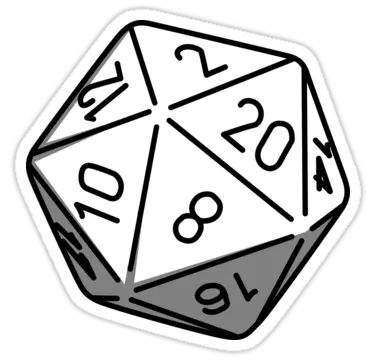Have you really enjoyed reading a work that qualifies and want to recommend it to others? This is the prime spot to help people out with those recommendations.
The way this thread works is that this thread will contain one top level comment for each Bingo square. In order to preserve the organization and readability of this post, please limit recommendations to only replies on those top-level comments. We will be removing comments that don’t follow this rule for for this specific post.
You can scroll through the thread or use the links above if your reader supports comment linking directly.
Reminder, Please DO NOT make comments that are not replies to a prepopulated top-level comment. Your comment will just be removed without any additional info.
Removed by mod
New Release:
New for 2024/2025 (no reprints or new editions). First translations into your language of choice are allowed. HARD MODE: This is the first work you’ve read by this author.
The gathering, by C.J. Tudor
Nuclear war: a scenario, by Annie Jacobsen
Plays With Words:
Written in a stylistically unconventional way. HARD MODE: Fits the definition of Experimental Literature.
- Flowers for Algernon by Daniel Keyes
- Infinite Jest by David Foster Wallace
- Ella Minnow Pea: A Progressively Lipogrammatic Epistolary Fable by Mark Dunn
- Catch-22 by Joseph Heller
- Finnegans Wake by James Joyce
- House of Leaves by Mark Z. Danielewski
- A Clockwork Orange by Anthony Burgess
I asked this question a few months back and had a ton of replies. I’ll leave a link to the thread and highlight my two favourite books so far.
Children of Time - Adrian Tchaikovsky “Evolutionary storytelling”. It tells the story of an entire civilization as it grows and evolves from nothing, whilst simultaneously telling a story that takes place over a much more conventional timescale. Very good book IMO, with two slightly-less-strong sequals
Idaho Winter - Tony Burgess What a bizarre book this was. I don’t know if it’s a good book, but it was weird and kept me entertained so that’s good enough for me.
Spoiler for what made it weird
The author gets dragged into the story at one point and becomes a character in the book by accident
LGBTQIA+ Lead:
A main character identifies as LGBTQIA+. HARD MODE: Includes a significant romance between characters that identify as LGBTQIA+.
Song of Achilles by Madeline Miller would fit the hard mode here, for those interested.
- The Amazing Adventures of Kavalier & Clay by Michael Chabon
- The Man Who Folded Himself by David Gerrold
- The Left Hand of Darkness by Ursula K. Le Guin
- Carmilla by J. Sheridan Le Fanu
Debut Work:
An author’s first work. HARD MODE: The author is widely regarded as having a profound impact on the genre/topic.
The Mysterious Affair at Styles by Agatha Christie, with the caveat that her early work is a bit racist. Styles, for example, I recall having an n-word casually dropped into a conversation, along with a couple of antisemitic remarks. If you don’t mind reading around that, however, it’s a nice little Poirot case.
I had a similar experience when I was working through some of the early “The Shadow” pulps and was surprised a couple times at just how blatant the racism was.
- Interview with the Vampire by Anne Rice
- Carrie by Stephen King
- The Hundred Thousand Kingdoms by N.K. Jemisin
- Fear and Loathing in Las Vegas by Hunter S. Thompson
- To Kill a Mockingbird by Harper Lee
- Jonathan Strange & Mr Norrell by Susanna Clarke
- Casino Royale by Ian Fleming
- Neuromancer by William Gibson
It’s a Holiday:
Takes place during a specific holiday, which is significant to the plot. HARD MODE: Not Christmas, a fictional variation of Christmas, or other winter festival.
- Hogfather by Terry Pratchett
- Hallowe’en Party by Agatha Christie
- We Were Liars by E. Lockhart
- V for Vendetta by Alan Moore
- Walpurgisnacht by Gustav Meyrink, Mike Mitchell
- A Night in the Lonesome October by Roger Zelazny
Among the Stars:
Features space, astronomy, or stardom. HARD MODE: The title references the theme, too.
The Calculating Stars by Mary Robinette Kowal
Mr Palomar by Italo Calvino.
Also qualifies for hard mode (the character is named after an observatory).
The Three-Body Problem, by Cixin Liu
- Binti by Nnedi Okorafor
- Leviathan Wakes by James S.A. Corey
- 2001: A Space Odyssey by Arthur C. Clarke
- Who Censored Roger Rabbit? by Gary K. Wolf (movie stars count)
ALT - She Blinded Me With Science
The author has a background and degree in a hard science. HARD MODE: More than one post graduate degree.
- The Postman by David Brin
- Contact by Carl Sagan
- The Boat of a Million Years by Poul Anderson
- Jurassic Park by Michael Crichton
- Dreamsnake by Vonda N. McIntyre
ALT - Translated
Not originally in your native tongue. HARD MODE: Has been translated into at least ten other languages. This Wikipedia page is a good place to start for widely translated works.
“100 Years of Solitude” Gabriel García Márquez (this works for HARD MODE) “Love in the Time of Cholera” Gabriel García Márquez
- Nineteen Eighty-Four by George Orwell
- Don Quixote by Miguel de Cervantes
- The Adventures of Pinocchio by Carlo Collodi
- What You Are Looking For is in the Library by Michiko Aoyama
- Planet of the Apes by Pierre Boulle
- Arsène Lupin, Gentleman-Thief by Maurice Leblanc
- The Little Prince by Antoine de Saint-Exupéry
Water, Water Everywhere
The title refers to some form or body of water. HARD MODE: Not liquid water.
- On Stranger Tides by Tim Powers
- The Ocean at the End of the Lane by Neil Gaiman
- Midnight Riot (The original UK title of this is River’s of London) by Ben Aaronovitch
Independent Author:
Self-published by the author. Works later published though a conventional publishing house don’t count unless you are reading it before the switch, and it’s republished before April 30th, 2025. HARD MODE: Not published via Amazon Kindle Direct.
- Swordheart by T. Kingfisher
- Dungeon Crawler Carl by Matt Dinniman
- This Quest is Broken! by J.P. Valentine
- Miss Percy’s Pocket Guide to the Care and Feeding of British Dragons by Quenby Olson
- Orconomics by J. Zachary Pike
- Unsouled by Will Wight
Disability Representation:
A main character has or gains a disability to which they must adapt. This disability must be grounded in reality: if a 4,000 year old Prince of the Shokan lost an arm, that would count; if he became a werewolf, it would not. HARD MODE: The piece is at least partially from their perspective.
- Feral Creatures by Kira Jane Buxton
- How to Train Your Dragon by Cressida Cowell
- Flowers for Algernon by Daniel Keyes
Eazy, Breazy, Read-zie:
A light, popcorn-worthy read that’s not real deep (see also “beach read” and “airport novel”). HARD MODE: You actually read it while on a vacation/staycation.
- Dungeon Crawler Carl by Matt Dinniman
- The Kaiju Preservation Society by John Scalzi
- The Mark of Zorro by Johnston McCulley
Stranger in a Strange Land:
The primary PoV is dropped into a completely unfamiliar situation or location. HARD MODE: Not portal fiction or isekai.
- Dungeon Crawler Carl by Matt Dinniman
- A Connecticut Yankee in King Arthur’s Court by Mark Twain
- A Princess of Mars by Edgar Rice Burroughs
Family Drama:
Family is important, but sometimes it’s also the cause of problems. Family dynamics are fundamental to the narrative. HARD MODE: Involves three or more generations of family members.
Pachinko by Min Jin Lee
- Charlie and the Chocolate Factory by Roald Dahl
- The Sandman Graphic Novels by Neil Gaiman
- The Library at Mount Char by Scott Hawkins
- The Ocean at the End of the Lane by Neil Gaiman
“100 Years of Solitude” Gabriel García Márquez (this works for HARD MODE)


